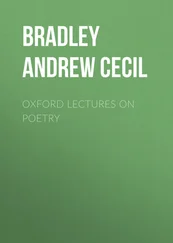Andrew Lang - Oxford
Здесь есть возможность читать онлайн «Andrew Lang - Oxford» — ознакомительный отрывок электронной книги совершенно бесплатно, а после прочтения отрывка купить полную версию. В некоторых случаях можно слушать аудио, скачать через торрент в формате fb2 и присутствует краткое содержание. Жанр: foreign_antique, foreign_prose, на английском языке. Описание произведения, (предисловие) а так же отзывы посетителей доступны на портале библиотеки ЛибКат.
- Название:Oxford
- Автор:
- Жанр:
- Год:неизвестен
- ISBN:нет данных
- Рейтинг книги:5 / 5. Голосов: 1
-
Избранное:Добавить в избранное
- Отзывы:
-
Ваша оценка:
- 100
- 1
- 2
- 3
- 4
- 5
Oxford: краткое содержание, описание и аннотация
Предлагаем к чтению аннотацию, описание, краткое содержание или предисловие (зависит от того, что написал сам автор книги «Oxford»). Если вы не нашли необходимую информацию о книге — напишите в комментариях, мы постараемся отыскать её.
Oxford — читать онлайн ознакомительный отрывок
Ниже представлен текст книги, разбитый по страницам. Система сохранения места последней прочитанной страницы, позволяет с удобством читать онлайн бесплатно книгу «Oxford», без необходимости каждый раз заново искать на чём Вы остановились. Поставьте закладку, и сможете в любой момент перейти на страницу, на которой закончили чтение.
Интервал:
Закладка:
Again and again, after Eadward the Elder took Mercia, the Danes went about burning and wasting England. The wooden towns were flaming through the night, and sending up a thick smoke through the day, from Thamesmouth to Cambridge. ‘And next was there no headman that force would gather, and each fled as swift as he might, and soon was there no shire that would help another.’ When the first fury of the plundering invaders was over, when the Northmen had begun to wish to settle and till the land and have some measure of peace, the early meetings between them and the English rulers were held in the border-town, in Oxford. Thus Sigeferth and Morkere, sons of Earngrim, came to see Eadric in Oxford, and there were slain at a banquet, while their followers perished in the attempt to avenge them. ‘Into the tower of St. Frideswyde they were driven, and as men could not drive them thence, the tower was fired, and they perished in the burning.’ So says William of Malmesbury, who, so many years later, read the story, as he says, in the records of the Church of St. Frideswyde. There is another version of the story in the Codex Diplomaticus (DCCIX.). Aethelred is made to say, in a deed of grant of lands to St. Frideswyde’s Church (‘mine own minster’), that the Danes were slain in the massacre of St. Brice. On that day Aethelred, ‘by the advice of his satraps, determined to destroy the tares among the wheat, the Danes in England.’ Certain of these fled into the minster, as into a fortress, and therefore it was burned and the books and monuments destroyed. For this cause Aethelred gives lands to the minster, ‘fro Charwell brigge andlong the streame, fro Merewell to Rugslawe, fro the lawe to the foule putte,’ and so forth. It is pleasant to see how old are the familiar names ‘Cherwell,’ ‘Hedington,’ ‘Couelee’ or Cowley, where the college cricket-grounds are. Three years passed, and the headmen of the English and of the Danes met at Oxford again, and more peacefully, and agreed to live together, obedient to the laws of Eadgar; to the law, that is, as it was administered in older days, that seem happier and better ruled to men looking back on them from an age of confusion and bloodshed. At Oxford, too, met the peaceful gathering of 1035, when Danish and English claims were in some sort reconciled, and at Oxford Harold Harefoot, the son of Cnut, died in March 1040. The place indeed was fatal to kings, for St. Frideswyde, in her anger against King Algar, left her curse on it. Just as the old Irish kings were forbidden by their customs to do this or that, to cross a certain moor on May morning, or to listen to the winnowing of the night-fowl’s wings in the dusk above the lake of Tara; so the kings of England shunned to enter Oxford, and to come within the walls of Frideswyde the maiden. Harold died there, as we have seen, but there he was not buried. His body was laid at Westminster, where it could not rest, for his enemies dug it up, and cast it forth upon the fens, or threw it into the river. Many years later, when Henry III. entered Oxford, not without fear, the curse of Frideswyde lighted also upon him. He came in 1263, with Edward the prince, and misfortune fell upon him, so that his barons defeated and took him prisoner at the battle of Lewes. The chronicler of Oseney Abbey mentions his contempt of superstitions, and how he alone of English kings entered the city: ‘ Quod nullus rex attemptavit a tempore Regis Algari ,’ an error, for Harold attemptavit , and died. When Edward I. was king, he was less audacious than his father, and in 1275 he rode up to the East Gate and turned his horse’s head about, and sought a lodging outside the town, reflexis habenis equitans extra moenia aulam regiain in suburbio positam introivit . In 1280, however, he seems to have plucked up courage and attended a Chapter of Dominicans in Oxford.
The last of the meetings between North and South was held at Oxford in October 1065. ‘ In urle quæ famoso nomine Oxnaford nuncupatur ,’ to quote a document of Cnut’s. ( Cod. Dipl. DCCXLVI. in 1042.) There the Northumbrian rebels met Harold in the last days of Edward the Confessor. With this meeting we leave that Oxford before the Conquest, of which possibly not one stone, or one rafter, remains. We look back through eight hundred years on a city, rich enough, it seems, and powerful, and we see the narrow streets full of armed bands of men – men that wear the cognisance of the horse or of the raven, that carry short swords, and are quick to draw them; men that dress in short kirtles of a bright colour, scarlet or blue; that wear axes slung on their backs, and adorn their bare necks and arms with collars and bracelets of gold. We see them meeting to discuss laws and frontiers, and feasting late when business is done, and chaffering for knives with ivory handles, for arrows, and saddles, and wadmal, in the booths of the citizens. Through the mist of time this picture of ancient Oxford may be distinguished. We are tempted to think of a low, grey twilight above that wet land suddenly lit up with fire; of the tall towers of St. Frideswyde’s Minster flaring like a torch athwart the night; of poplars waving in the same wind that drives the vapour and smoke of the holy place down on the Danes who have taken refuge there, and there stand at bay against the English and the people of the town. The material Oxford of our times is not more unlike the Oxford of low wooden booths and houses, and of wooden spires and towers, than the life led in its streets was unlike the academic life of to-day. The Conquest brought no more quiet times, but the whole city was wrecked, stormed, and devastated, before the second period of its history began, before it was the seat of a Norman stronghold, and one of the links of the chain by which England was bound. ‘Four hundred and seventy-eight houses were so ruined as to be unable to pay taxes,’ while, ‘within the town or without the wall, there were but two hundred and forty-three houses which did yield tribute.’
With the buildings of Robert D’Oily, a follower of the Conqueror’s, and the husband of an English wife, the heiress of Wigod of Wallingford, the new Oxford begins. Robert’s work may be divided roughly into two classes. First, there are the strong places he erected to secure his possessions, and, second, the sacred places he erected to secure the pardon of Heaven for his robberies. Of the castle, and its ‘shining coronal of towers,’ only one tower remains. From the vast strength of this picturesque edifice, with the natural moat flowing at its feet, we may guess what the castle must have been in the early days of the Conquest, and during the wars of Stephen and Matilda. We may guess, too, that the burghers of Oxford, and the rustics of the neighbourhood, had no easy life in those days, when, as we have seen, the town was ruined, and when, as the extraordinary thickness of the walls of its remaining tower demonstrates, the castle was built by new lords who did not spare the forced labour of the vanquished. The strength of the position of the castle is best estimated after viewing the surrounding country from the top of the tower. Through the more modern embrasures, or over the low wall round the summit, you look up and down the valley of the Thames, and gaze deep into the folds of the hills. The prospect is pleasant enough, on an autumn morning, with the domes and spires of modern Oxford breaking, like islands, through the sea of mist that sweeps above the roofs of the good town. In the old times, no movement of the people who had their fastnesses in the fens, no approach of an army from any direction could have evaded the watchman. The towers guarded the fords and the bridge and were themselves almost impregnable, except when a hard winter made the Thames, the Cherwell, and the many deep and treacherous streams passable, as happened when Matilda was beleaguered in Oxford. This natural strength of the site is demonstrated by the vast mound within the castle walls, which tradition calls the Jews’ Mound, but which is probably earlier than the Norman buildings. Some other race had chosen the castle site for its fortress in times of which we know nothing. Meanwhile, some of the practical citizens of Oxford wish to level the Jews’ Mound, and to ‘utilise’ the gravel of which it is largely composed. There is nothing to be said against this economic project which could interest or affect the persons who entertain it. M. Brunet-Debaines’ illustration shows the mill on a site which must be as old as the tower. Did the citizens bring their corn to be tolled and ground at the lord’s mill?
Читать дальшеИнтервал:
Закладка:
Похожие книги на «Oxford»
Представляем Вашему вниманию похожие книги на «Oxford» списком для выбора. Мы отобрали схожую по названию и смыслу литературу в надежде предоставить читателям больше вариантов отыскать новые, интересные, ещё непрочитанные произведения.
Обсуждение, отзывы о книге «Oxford» и просто собственные мнения читателей. Оставьте ваши комментарии, напишите, что Вы думаете о произведении, его смысле или главных героях. Укажите что конкретно понравилось, а что нет, и почему Вы так считаете.












